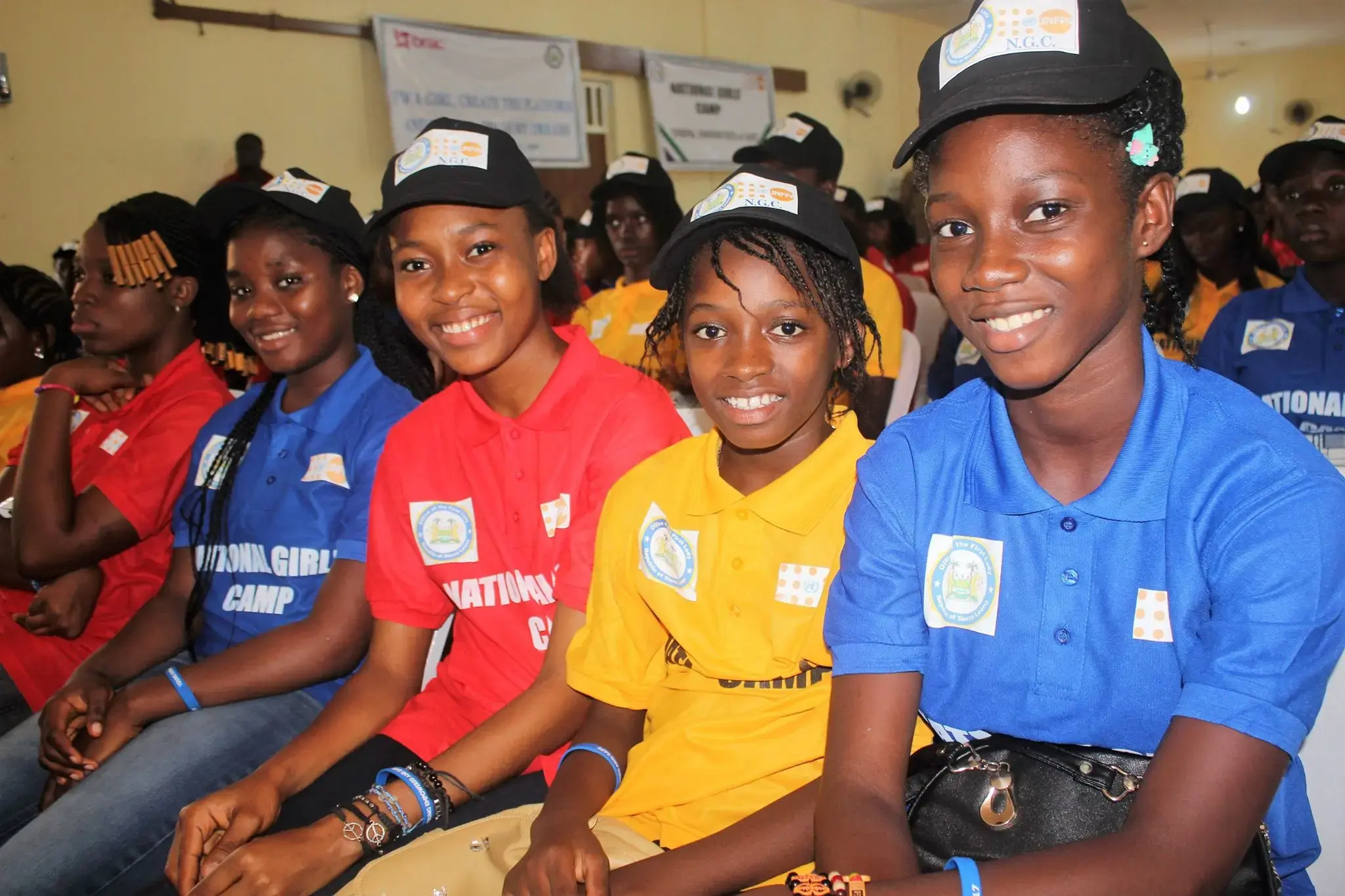Sierra Leone ranks as the 18th country with the highest prevalence of child marriage globally, with 38.9 percent of girls married before age 18 among 20-24 years, and 12.5 percent married before age 15 among 20-24 years (DHS, 2013).
Sierra Leone is one of 12 countries implementing the Joint UNFPA-UNICEF Global Programme to Accelerate Action to End Child Marriage to reach girls who are most at risk to adolescent pregnancy and child marriage. Through the joint programme, UNFPA supports the Women in Crisis Movement (WICM) - a local non-governmental organisation in Sierra Leone. WICM works to empower vulnerable women and girls through better reproductive health, skills training and safe spaces. With funding from the Government of Canada, UNFPA established 160 safe spaces in districts where child marriage is most prevalent (Port Loko, Kambia, Bonthe, Tonkolili, Koinadugu and Pujehun).
Safe spaces generally are girls-only spaces, as public spaces are often inhabited largely by men and boys. Community halls, dedicated programme spaces, school classrooms and youth centres are often used as safe spaces. The girls helped to map the locations where they felt safe and obtained permission to use those spaces. Each safe space includes a Girls' Club with 25- 30 girls who are placed into two age groups: 10-14 years and 15-19 years. The girls meet regularly and receive support from community stakeholders. In the programme, girls who are interested in developing their skills, have higher levels of education, and show leadership potential are identified as mentors. They are trained to lead and mentor the girls in the clubs and are paid a small sum to raise awareness of the programme within their communities. The mentors deliver a curriculum and act as role models for the girls. The programme includes health and social workers who provide services and provides a social network for the girls.
Child advocates
One such girl to benefit from the Girls' Club is Munda Rogers, now 20-years-old, from Sumbuya, Bessima Community, Old Town Pujehun District, who served as a mentor. Munda joined the Girls' Club in Pujehun town and was one of the child advocacy leaders in her community. She proved to be one of the most active members in the district, advocating particularly on girls' empowerment, upholding girls’ rights and the elimination of teenage pregnancy and early marriage.
When asked how being a mentor benefited her, Munda stated, “Before my selection as a mentor, my parents found it difficult to pay my school bills due to their low financial status. My father is elderly and cannot afford the costs of my education while my mother is left to pay for me and my siblings. This situation placed me at risk of early marriage and teenage pregnancy but thankfully, the Girls' Club saved me from early pregnancy and marriage. My selection as a mentor by the Women in Crisis Movement was a blessing to me and my family, because the monthly stipend enabled me to pay for my schooling and help out with the bills at home.”
Mentoring for success
Explaining the benefits of mentoring, Munda said, “There were a lot of girls whom I mentor in the club and awareness among them increased significantly. We provide information on reproductive health, family planning, HIV, dangers of early marriage and teenage pregnancy. The use of the life skills modules has provided age specific information for my club members.
The project is reaching over 1000 girls in my district alone. Awareness is raised and still raising against early marriage and teenage pregnancy. In addition, as far as I am aware, none of the girls in my club has been pregnant or married yet.
The skills training component of the project for school-drop outs has helped a lot. Some young girls were doing nothing and just depending on men for their survival, but since they joined the club, most of them are now engaged in meaningful activities. For example, through the hairdressing and catering courses, many are earning a living to support themselves and their families.
There are other mentors like me who are able to continue with their schooling due to monthly stipend and other educational support they receive from the programme.”
In 2017, with UNFPA support, approximately 7,333 vulnerable girls received life skills education on child marriage, teenage pregnancy and other harmful practices, and 340 mentors were trained.
***
UNFPA is the lead UN agency for delivering a world where every pregnancy is wanted, every childbirth is safe and every young person’s potential is fulfilled. UNFPA reaches millions of women and young people in 155 countries and territories.
For more information, please contact:
Ms. Angelique Reid, Communications Specialist
UNFPA Sierra Leone
M: 078 340044



